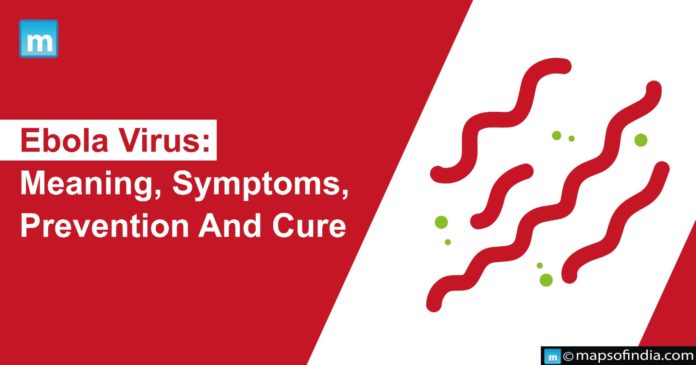What is Ebola Virus?
The Ebola virus was first discovered in 1976 near the Ebola River in the Democratic Republic of Congo, and since then, there have been several outbreaks of the disease in Africa. The Ebola virus is part of a family of viruses known as Filoviridae, and there are five known species of the virus, four of which can cause disease in humans.
- The Ebola virus is a highly infectious and often fatal disease that affects humans and other primates, such as monkeys and gorillas.
- The virus transmits via direct exposure to surfaces that have been in direct touch with infected animals’ blood, saliva, tissues, or other body fluids.
- The Ebola virus causes a severe and often deadly illness, with symptoms appearing 2 to 21 days after infection.
Symptoms of Ebola Virus
The symptoms of the Ebola virus typically appear 2 to 21 days after infection, although in some cases, it can take up to three weeks for symptoms to appear.
- Early symptoms of the Ebola virus include muscle pain, fever, headache, sore throat, vomiting, diarrhoea, and a rash.
- Sometimes, someone infected with Ebola may experience abdominal pain, chest pain, and difficulty breathing. As the disease progresses, internal and external bleeding may occur, leading to serious complications and death.
- In addition to these physical symptoms, Ebola patients may experience mental and emotional symptoms, such as confusion, anxiety, and depression. The virus can also cause damage to the central nervous system, leading to seizures, comas, and even death.
- The progression of Ebola can be rapid, and severe dehydration can occur due to the loss of bodily fluids through vomiting and diarrhoea.
It is important to note that symptoms of Ebola can be similar to those of other diseases, such as malaria, dengue fever, and cholera. As a result, it is important to seek prompt medical attention if you have recently been in an area where Ebola is present and are experiencing symptoms. Early detection and treatment of Ebola can significantly increase the chances of survival, so seeking medical care as soon as possible is essential if you believe you may have been infected.
Prevention and Cure
There is currently no specific cure for the Ebola virus, but early detection and treatment can significantly increase the chances of survival. The best way to prevent the spread of Ebola is to practice good hygiene, avoid close contact with infected individuals and their bodily fluids, and avoid contact with wild animals that may carry the virus.
To prevent the spread of Ebola, it is important to wash your hands frequently with soap and water and to prevent touching your eyes, nose, and mouth without first washing your hands. It is also important to practice safe burial techniques to avoid contaminating the environment with the virus.
In addition to these preventive measures, it is also important to receive the Ebola vaccine if you are at high risk of infection, such as healthcare workers and individuals living in areas where the virus is present. The Ebola vaccine effectively prevents infection and is recommended for individuals at high risk of exposure to the virus.
Treatment for the Ebola virus is largely supportive and involves maintaining hydration, electrolyte balance, and oxygenation and treating any secondary infections that may occur. In some cases, antiviral medications and immunoglobulin treatments may also help the body fight the virus.




